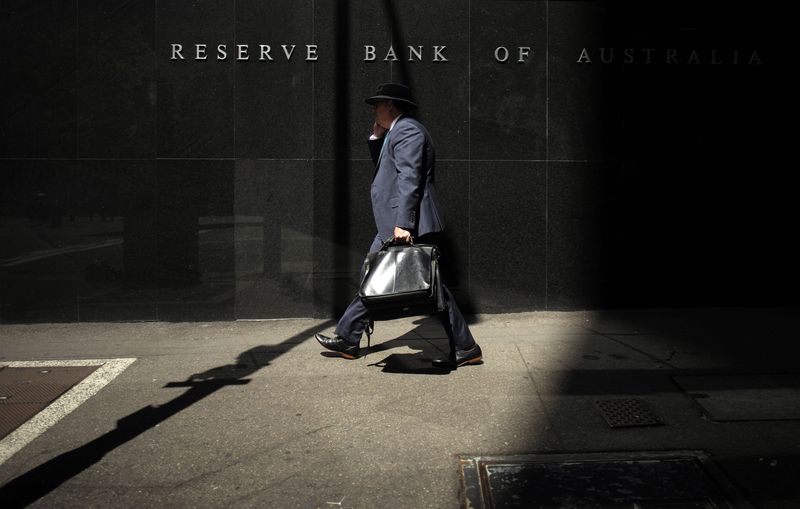By Wayne Cole
SYDNEY (Reuters) - After a good financial crisis, with sound finances, robust banks and buoyant Chinese demand for its commodities, the returns that made Australia a magnet for investors are buckling under the weight of negative yields elsewhere.
Foreign funds have poured money into Australia, the only advanced economy to avoid recession after the global crisis, drawn to its booming services sector, agricultural and mineral resources and relatively high interest rates - so much so that they threatened its competitiveness by keeping the local dollar too strong.
That was a major reason the Reserve Bank of Australia (RBA) last week ended an 18-month policy hiatus by cutting rates to an all-time low of 2.25 percent, its resistance worn down by the abundant liquidity made available by central banks across the globe.
The pressure is only likely to get worse now the European Central Bank has embraced quantitative easing, and now Australia's advantages have been eroded by falling commodity prices and a slowing Chinese economy.
Bank of America estimates that more than $7 trillion (£4.6 trillion) of government debt in Europe and Japan already has negative yields, while 52 percent of all sovereign bonds yield less than 1 percent, and 1.4 billion people face negative real rates.
Australia is caught in the slipstream of this new era of diminishing returns.
Australian government bonds dated up to five years pay less than the overnight cash rate, and yields on 10-year paper (AU10YT=RR) recently touched 2.38 percent, the lowest on record and down from 4.00 percent a year earlier.
These are assets that routinely paid between 9 percent and 15 percent in the last 30 years of the 20th century. While inflation is much lower these days, yields have fallen so far so fast that real spreads are also wafer thin.
With the RBA's preferred measure of core inflation running around 2.2 percent, 10-year paper offers a real annual return of just 30 basis points. Lend for three years, and it will actually cost you 20 basis points when adjusted for inflation.
GET USED TO LESS
Such figures are a headache for all investors, but particularly the insurance industry, due to the long life of its products.
"Long-term insurance portfolio returns were never created with such low bond yields in mind, and nobody has any experience in dealing with such unexpected price moves," says Sean Kean, a fixed-income consultant for Credit Suisse.
"As much as they don't want to invest at such low levels, they really have very little choice but to do so."
The thirst for returns could once be slaked by buying stocks that pay high dividends, such as banks, which used to deliver dividend yields consistently above 6 percent. But such has been the rush to those stocks that prices have jumped to record highs, squeezing returns in the process.
The dividend yield on investor favourite Commonwealth Bank of Australia (AX:CBA) has shrunk to 4.3 percent from 6.29 percent just two years previously.
The offerings are worse still on traditional bank deposits.
So far this year the rates on 30 savings accounts in Australia have been cut, and 21 now pay less than 1 percent, according to online financial comparison site Mozo.
"Savings rates have been taking a hammering for some time now, but following last week's RBA decision, savers are set to suffer even more," says Mozo director, Kirsty Lamont.
All of which makes for a difficult adjustment for fund managers and small investors alike.
"We tell our clients that they have to get used to lower yields," says Steven Goldman, global portfolio manager at Kapstream Capital, which has A$8.4 billion (£4.2 billion) under management.

"Yields in Australia could be at zero, and that would not be as low as they could go," he warns. "There is certainly that risk that yields continue to fall and you are delivering lower and lower returns to clients."